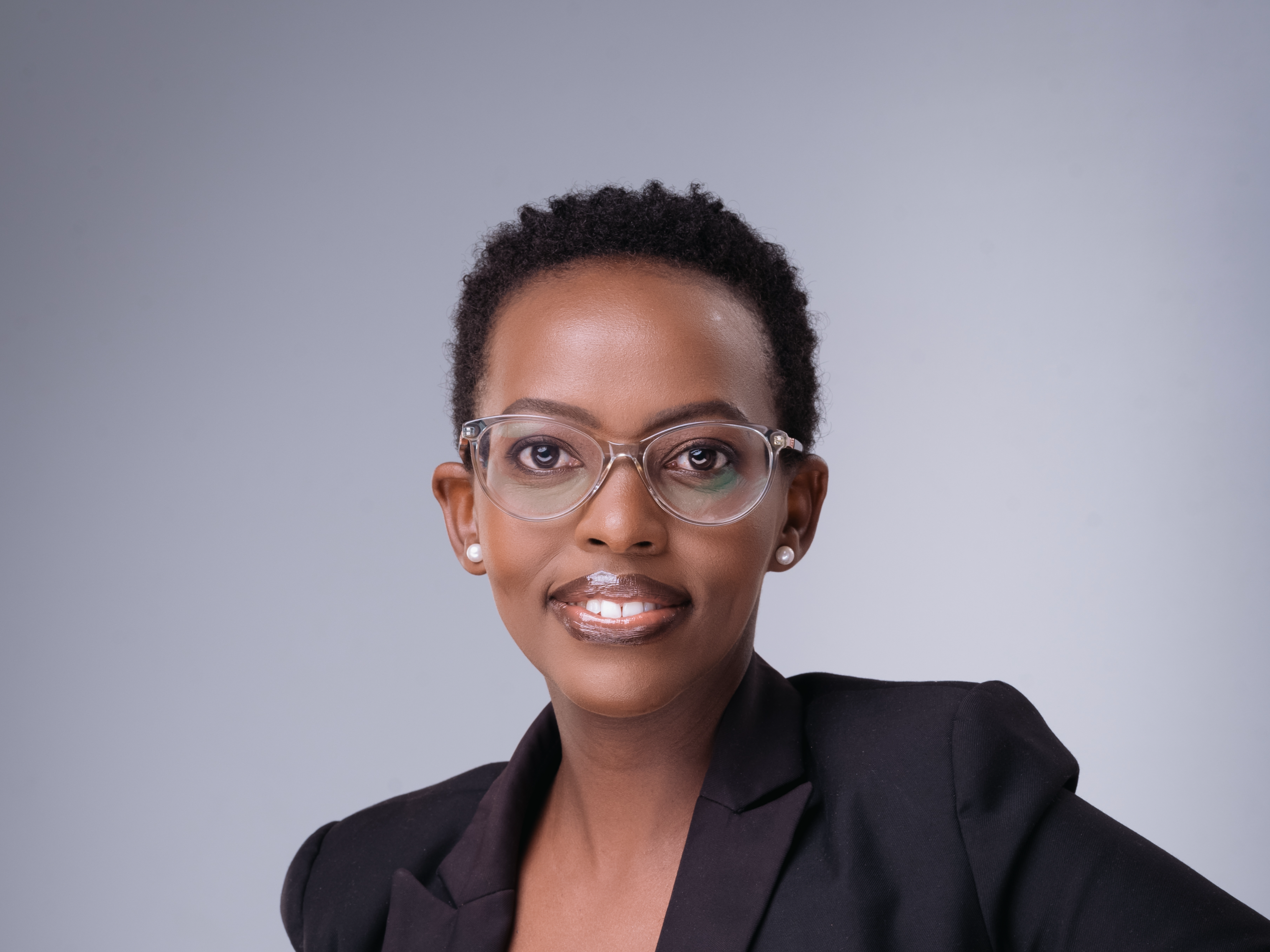In a world where Fintech is fast reshaping Africa’s economic landscape, few leaders are steering the transformation with the grace, grit, and vision of Charity Mutagamba, the CEO of FinCom Technologies.
From humble beginnings as a salesperson to becoming the force behind one of Uganda’s most impactful payment solutions, she spoke to CEO Magazine about the journey that shaped her.
You have a deeper understanding of the Fintech industry. What is the story?
I’ve been with Service Cops since 2010, initially joining as a salesperson. At the time, we were working with Stanbic Bank to sell credit cards to ease the banking sector workload.
The founders had a heart for delivering timely services and improving the services industry in Uganda.
How and what inspired you to join the financial technology industry and Service Cops, in particular?
I didn’t intentionally join the financial industry. I grew with the company and the innovations we pursued. For instance, in 2016, I was part of the team that piloted SchoolPay. This solution was developed to ease the burden on parents who stood in long queues to pay school fees, often at the expense of their work and income.
I worked closely with the product development team, capturing market feedback and helping tailor the system to actual user needs.
I also supported onboarding schools and worked in back-office roles like data processing and customer care.

And when does FinCom Technology come into the picture?
That was in 2020, when the National Payments Systems Act came into effect. That meant that payment processing businesses were now under the Bank of Uganda regulation. That compelled the Service Cops founders to start FinCom to focus specifically on the payments arm. That’s when I was appointed chief executive officer.
How has it been so far?
Of course, we are always on our toes, doing this and that innovation.
However, at a personal level, my biggest pivotal moment was during the expansion of SchoolPay.
Our team had grown too small for the workload. So, I had to step back from direct operations and focus on mentoring and retooling others.
That transition was critical as I had to ensure continuity without micromanaging. It was defining because I saw the importance of sharing knowledge and creating opportunities for others, while also growing into a leadership role myself.
You joined as a salesperson and later became a leader. How are you managing?
I work closely with our directors – Mr Joseph Ndiho and Mr Matthias Kamugasho – two of the four Service Corps’ founders.
They are approachable and committed to the growth of not only me, but everyone who works with Service Cops.
They have deeply influenced me in particular. They saw potential in me and supported me even when I doubted myself. That nurturing culture is something I have adopted with my team.
I also draw wisdom from Mr Arthur Rutaro and Mr David Mushabe, who have shared invaluable leadership along the way.

How is Service Cops/FinCom Technologies unique from the rest of the players in the Fintech space?
We are driven by problem-solving. We don’t just create tech for the sake of it, but identify real social and economic issues and build solutions around them.
Take the long school fee queues, for example. With SchoolPay, we practically made that frustration a thing of the past.
We have also developed products for Saccos and landlords to streamline rent and savings, reducing mismanagement and increasing transparency.
Our goal is always to create social impact, and in the process, remain sustainable as a business.
Technology keeps evolving. How has Service Cops evolved as a company and product development?
We began by offering business process outsourcing, helping Stanbic with credit card services and Centenary Bank with loans. We later added call centres and gradually began creating our proprietary financial products.
The biggest shift came with the National Payments Systems Act, which reshaped our operational strategy and led to the creation of FinCom.
That said, we are expanding and today, we are not only operating in Uganda, but we have expanded into Ethiopia, Tanzania, Kenya, and Rwanda, with plans of entering Malawi and Nigeria.
You seem to have quite a big number of stakeholders ….
Yes, we have several products. However, each of our products serves different clients.
SchoolPay largely serves students, who are our primary stakeholders. However, beyond students, we have a partnership with more than 23 financial institutions across all banking tiers.
We also work with Saccos, many of which serve schools directly. These partnerships enhance accessibility and convenience for parents.
Let’s talk about the opportunities. What is your take on Fintech opportunities across Africa?
We have barely scratched the surface. There are a lot of opportunities that need to be exploited.
For instance, there is a huge opportunity in neo-banking, where people can open accounts entirely online. Then there is also micro-insurance and financing for everyday needs.
Africa’s market is still fertile – we just need to keep innovating around real problems.

Where there are opportunities, there are challenges ….
Yes, but our biggest challenge has been expanding into new regions. It is something that comes with different regulations and user needs.
Funding has also been a key challenge. So far, our founders have bootstrapped the company, but we are now at a point where we are looking for like-minded investors to scale what we have already proven to be profitable.
How are you navigating the challenges?
We are constantly adapting solutions. For example, though we have been in Kenya for a while, market acceptance is still growing, which pushes our teams to better understand local pain points for better market acceptance.
How are you using technology to your advantage?
With over 12,000 schools and 23+ financial institutions on SchoolPay, we have accumulated data that can shape powerful new products. For example, we could offer school fees loans based on parents’ payment patterns.
We are also working with banks to help schools access financing even when they aren’t banking clients, using data from SchoolPay to inform decisions.
And through partnerships with companies like Sanlam, we have made it possible for clients such as small-scale vendors to save daily amounts like Shs5,000 that earn interest and contribute toward school fees.
These form some of the company’s prospects to better serve our clients.
This sounds interesting. Are you doing anything to bring the unbanked into the financial inclusion fold?
We have the Sanlam venture. This is open to everyone and seeks to improve our saving culture.
Additionally, as a corporate agent for Centenary Bank, we are able to extend financial access to remote areas through agency banking.
With that, we have also enabled Saccos to act as agents, letting them deposit directly into bank systems, minimising fraud.
It also allows them to serve local communities, giving them access to formal financial services.

How are you aligning with global trends like environmental sustainability and financial inclusion?
We launched the Yonja Campaign in partnership with Rotary Uganda and the Uganda Bikers Association. We have taken it to cities like Arua and Mbarara, where we combine community clean-ups with training on sustainable waste management.
We see tech not just as a financial tool, but as a platform to drive inclusive development and sustainability.
What is one impact story that stands out for you?
When we were rolling out SchoolPay, some school staff, like bursars, feared the system would make their roles redundant and actively sabotaged it.
In one instance, a school director was about to give up on his school because it was not bringing in any profit. He shared that we were his last resort before throwing in the towel. As the term opened, the school administrator deliberately entered wrong surnames, frustrating parents and trying to discredit the system.
We discovered the anomaly during a service call. When we shared our findings with the school director, he admitted he had not called off the collaboration despite the issue at hand because, for once, in the first school term, he had collected far more than he had seen in years.
Another amazing moment was the very first person who made a payment via SchoolPay. We had handed out these cards to schools, and he reached out for directions. He managed to make the payment, but after that called to ascertain if he had paid to the right place.
It was comforting that we had got him out of the pain of the long queues, yet laughable because he had tested the system with the whole school fees amount. We allayed his fears by sharing with him the receipt and I am certain that was the last time he went to the bank to pay school fees.
Tell us about your leadership at Fincom Technologies.
Whatever we have achieved so far has been a team effort. We have built a free and inviting environment, which is especially important for our youthful team.
We encourage creativity, authenticity, and open communication. Integrity is central to everything we do, especially because we work in the financial space. I model this value for the team.
We also invest in team building and host quarterly celebrations to keep motivation and morale high.
What is the best advice you ever received?
“Never give up.” It was from my primary school head teacher during our PLE briefing – and it has stayed with me ever since, especially during tough times.
What would be your advice to anyone trying to make their mark in Fintech?
Be open-minded, hardworking, and eager to learn. The space is dynamic, so you need to keep evolving. Also, take initiative – some knowledge won’t be handed to you. You will have to go out and find it.
Parting shots…
I believe in God a lot, and I am convinced that it has only been by Him that I have done all this. So even when we work hard, it should be to His glory.
Charity Mutagamba’s story is one of resilience, integrity, and purpose-driven leadership. As she continues to nurture a culture of openness and innovation at FinCom Technologies, her message to the next generation is clear – stay curious, committed, and never stop learning.

 Bank of Uganda Approves Finance Trust Bank's Application to Downgrade to a Credit Institution
Bank of Uganda Approves Finance Trust Bank's Application to Downgrade to a Credit Institution


